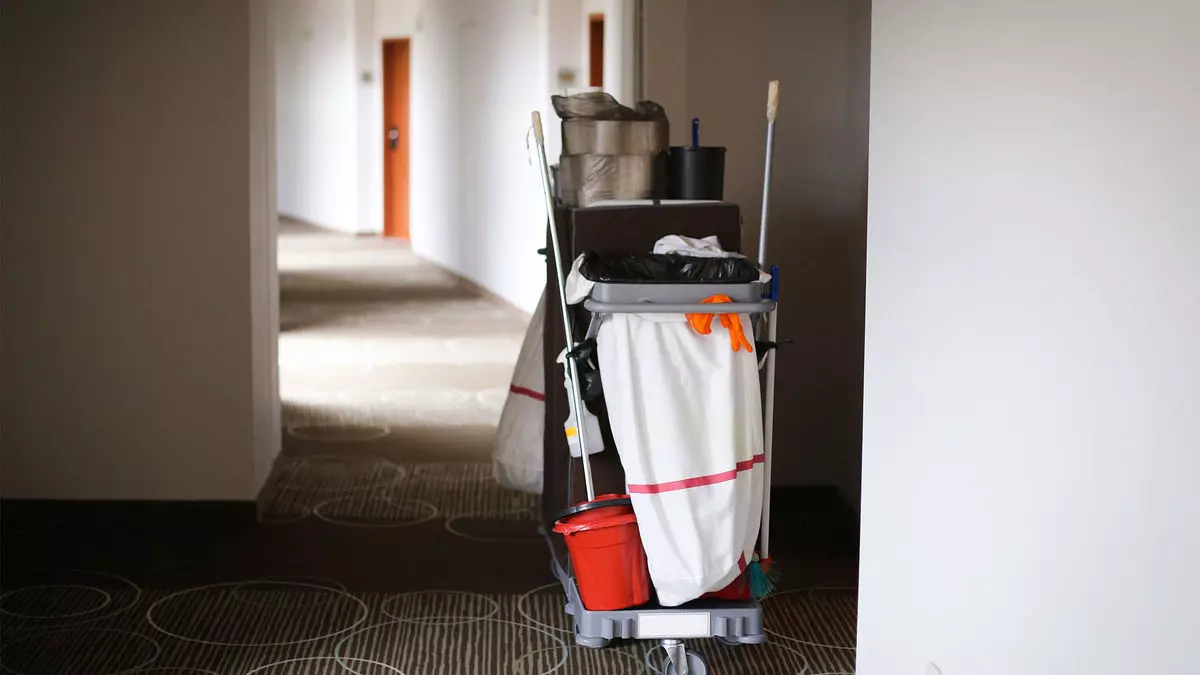Hotel workers, especially housekeepers like Fatima Amahmoud, are facing overwhelming workloads due to the reduction in daily room cleaning. The decline in automatic room cleaning and the increase in guests opting out of cleaning services have left housekeepers with unmanageable tasks. This has been aggravated by labor cuts and worker shortages experienced during the Covid-19 pandemic. The struggle to balance environmental concerns with labor costs has resulted in a battle between the Unite Here union and major hotel chains.
The recent strikes by 10,000 hotel workers represented by the Unite Here union across various cities highlight the frustration over working conditions. The demands for higher wages and a reversal of service and staffing cuts have led to conflict between the union and hotel management. The refusal to accept excessive workloads and inadequate compensation has become emblematic of labor disputes within the hospitality industry.
The lingering toll of the pandemic on low-wage women, particularly Black and Hispanic women, is evident in the hotel industry. Women, especially women of color and immigrants, make up the majority of building housekeepers, facing challenges in securing family-sustaining compensation. The discrepancy in employment rates between women with and without college degrees highlights the undervaluation of hospitality work, calling for fair treatment and compensation for service workers.
Amidst the ongoing labor unrest, the Unite Here union aims to secure fair wages and benefits for hotel workers, particularly housekeepers. The success in Southern California in negotiating significant wage hikes and workload guarantees sets a precedent for future contract negotiations. However, the battle to align compensation in the hospitality industry with more male-dominated sectors remains a long-standing struggle for the union.
While the American Hotel and Lodging Association cites efforts to attract workers by increasing wages and addressing staffing shortages, hotel employees like Maria Mata and Nely Reinante continue to face financial difficulties and erratic work schedules. The reliance on hourly wages and the lack of consistent full-time work hours contribute to the challenges faced by housekeepers, further exacerbating the need for fair compensation and job security.
As hotels navigate the post-pandemic recovery and strive to adapt to evolving travel trends, the battle over daily room cleaning continues to be a point of contention between hotel management and housekeepers. With the union pushing for language to prevent hotels from encouraging guests to opt out of daily housekeeping, the struggle to restore automatic cleaning services remains a key issue in ongoing contract negotiations and labor disputes within the industry.
The battle for fair wages, workload guarantees, and job security for hotel workers, particularly housekeepers, reflects a broader societal issue of undervaluing essential service work. The ongoing labor unrest highlights the need for equitable compensation, labor rights, and improved working conditions within the hospitality industry. hotel workers’ fight for fair treatment and respect in the workplace is a crucial step towards achieving social and economic justice for all workers in the industry.

